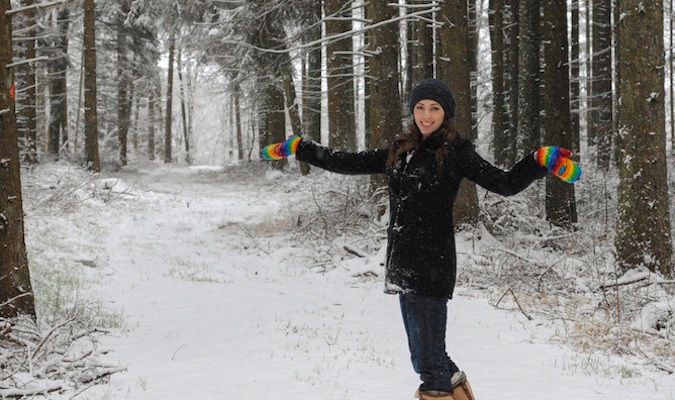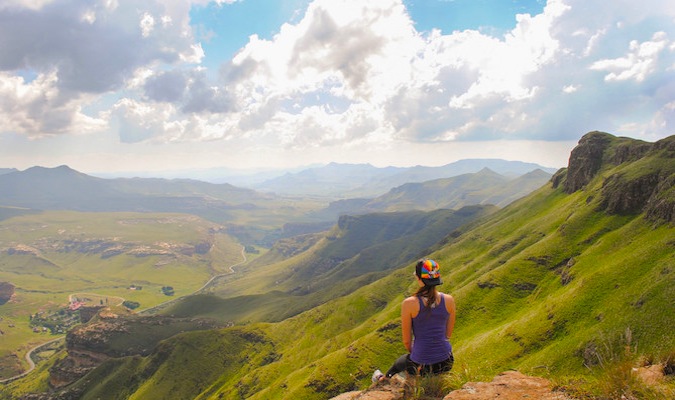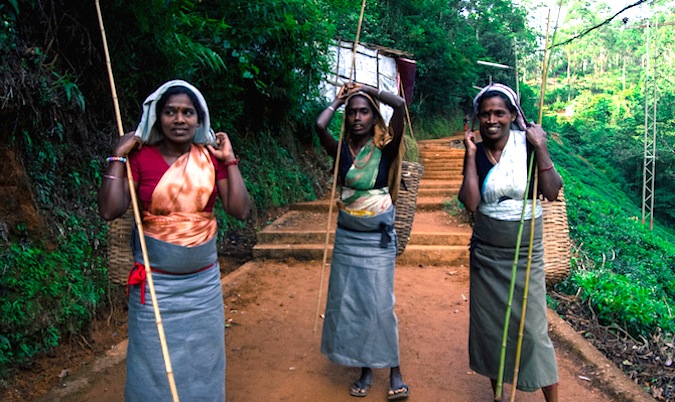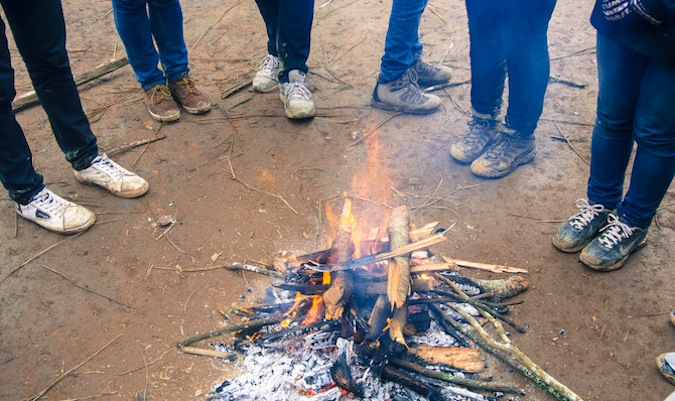One of the chief concerns for most would-be solo travelers is safety. Can I stay safe on my own? How can I convince my friends and family that I’ll be okay? The good news is: yes, you will be safe on the road. It’s easier than you think, because you already have the skills you need — the same methods you use to stay safe at home are relevant abroad as well.
Most people are scared before taking off on their first solo adventure (or in my case, 30th solo adventure). It’s easy to be nervous before heading somewhere new. There are a lot of unknown factors (will you make friends? will you be safe?) that you’ll turn over and over in your brain.
But it’s all in your head. Your brain is creating worst-case scenarios that aren’t likely to happen. I’ve found that following a few simple rules is enough to keep me (and you) safe on the road.
Trust your gut instincts

There’s much to be said about the power of intuition. If something or someone gives you an uneasy vibe, there’s no shame in walking away or saying no. If your gut is telling you that something doesn’t feel right, listen to it. This sense naturally becomes more heightened over time as a solo traveler.
Some people thought I was crazy and even stupid to hitchhike through China, but after years on the road, I trusted my intuition enough to sound the alarm bells if something didn’t feel right. There were times, such as late at night in Rome, when I’ve been offered a ride and immediately said no because I knew something was off. It’s surprising how much listening to that little voice in the back of your mind can steer you in the right direction.
Don’t be afraid to say no

Don’t be afraid that you will disappoint people by only saying yes when it feels right. Your solo journey is about you and nobody else.
Sometimes in bars and hostels, the group mentality to keep drinking and the pressure to partake in yet another round of shots is present on a daily basis. Getting too intoxicated is dangerous, and saying no feels good sometimes. You earn your own self-respect that way, and nothing is more important than that.
Moreover, getting too intoxicated can lead to serious problems. Drinking is just fine in moderation, but keep it to a few drinks at most if you’re alone without anyone to look out for you. I can’t tell you how long my list is of friends who have been robbed in alleyways in Spain or mugged in an otherwise safe Berlin because they became too intoxicated. It can happen easily, especially when in party areas or with party people. It’s okay to imbibe sometimes, but pace yourself.
Keep a dummy wallet and whistle
In order to keep your most important valuables safe, some travelers suggest using a dummy wallet, which contains some canceled credit cards and just a little bit of cash. It’s enough to make a would-be thief think he’s getting something worthwhile, while keeping your real valuables well hidden, like under the insole of your shoe.
Another important tool is something that makes noise. A whistle has come in handy more than once for me, especially when I remembered the tale of another solo female traveler who once used it to ward off rabid monkeys in Indonesia. I did the very same several months later when, in a split second, I remembered to use my whistle as an angry monkey was lunging toward me. It goes to show that you never know how useful something so small can be.
Get advice from locals

Ask employees at your hotel or guesthouse which scams to look out for. Find out not only what you should see during your visit but also which areas to avoid. Nobody knows this better than the people who live there year-round.
When I was in Ho Chi Minh City, for example, the super helpful staff at my hostel told me to be careful with my cell phone out on the streets and to beware of bag-snatching thieves. Given this, when I went out at night I only took a bit of money in a pocket in my shorts that buttoned, and I left everything else at the hostel, including my key at the reception desk.
In addition, before you visit a country, research common scams and dangers at your destination on a travel information website. For Americans, that would be the Bureau of Consular Affairs.
Dress appropriately

Dress like a local in order to blend in. By standing out, you risk more than just annoying catcalls. It’s a sad reality, but in some countries, women can’t dress as they please and need to cover up.
In traditionally Muslim countries, for example, wearing shorts and tank tops is not advisable and can be perceived as offensive. It’s best to at least cover the shoulders and the knees. Do some research on what’s appropriate to wear before packing.
That seems obvious, but it’s still all too common to see topless girls on the beaches in Thailand, or super short shorts and crop tops in Malaysia and Indonesia. In order to be respected, it’s important to respect the locals’ customs and modesty levels.
Don’t walk alone at night

In some countries, it’s perfectly safe to walk alone at night. In others, it could be dangerous. Going out at night in groups or asking to be accompanied by someone else at your guesthouse or hotel is always smart.
Unfortunately I learned this the hard way after someone grabbed me in the dark as I walked along a dirt path in Nepal. The local police and my guesthouse owner were both bewildered, saying that kind of thing never happens there. Well, it turns out that it does, and I made sure never to be alone at night thereafter in Nepal, and now I make sure to not walk alone late at night.
Make copies of your important documents
Make copies of your important documents, such as your passport and any identification. Keep electronic copies as well, should the worst occur and you lose the paper copy along with the physical document.
In addition, be sure to take photos of everything you’re traveling with and upload them to a cloud server. This will help prove you owned the item in case you need to make a travel insurance claim.
Know the local emergency numbers
Look up the local emergency number online before you depart or ask the staff at the front desk wherever you’re staying. Of course, the best-case scenario is that you never have to use it, but it’s always smart to be prepared in case you do need it.
Let friends know where you are

Make sure someone (a friend, family member, or fellow traveler) knows your itinerary and where you should be at any given time. Try not to go off the grid completely or for long periods of time, especially if you have worried parents back home. If you do change your plans — because it’s bound to happen sometime — don’t forget to let someone know. Internet cafes are generally easy to find, and many countries have inexpensive SIM cards ($20 or less) that will help you keep in touch if you have an unlocked phone. Besides, if you’re on the move, having Internet access for booking travel arrangements and finding directions is often a godsend.
In closing, traveling solo is marvelous. It allows you to make all of your own travel decisions, promotes personal growth and independence, and can even be a bit safer since you can take in more of your surroundings than if a friend were around distracting you. Solo traveling helps to sharpen intuition and, despite typical worries, is often no more dangerous than your hometown.
The same common sense you use at home is relevant abroad. It’s not rocket science, and as long as you’re smart about it and follow these simple tips, you’re in for a positive adventure.

 On the second Wednesday of the month, Kristin Addis from Be My Travel Muse writes a guest column featuring tips and advice on solo female travel. It’s an important topic I can’t adequately cover, so I brought in an expert to share her advice. This month her column is on safety tips, since it’s been a common question on my book tour stops.
On the second Wednesday of the month, Kristin Addis from Be My Travel Muse writes a guest column featuring tips and advice on solo female travel. It’s an important topic I can’t adequately cover, so I brought in an expert to share her advice. This month her column is on safety tips, since it’s been a common question on my book tour stops.

